

|

|

|
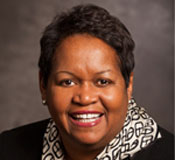
|
April 23, 2014
New funding for influenza research
 |
| H1N1 virus |
The National Institute of Allergy and Infectious Diseases (NIAID) has awarded Emory a contract to fund the Emory-UGA Center of Excellence for Influenza Research and Surveillance (CEIRS). The first-year award is approximately $3.6 million, with potential funding up to a total of $26.7 million available over seven years. The contract award includes a subcontract to the University of Georgia and to the Harbin Veterinary Research Institute in Harbin, China.
The Emory-UGA CEIRS was originally launched and funded in 2007. Today the CEIRS network is made up of five institutions.
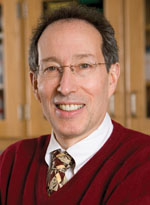 |
|
| Walter Orenstein | |
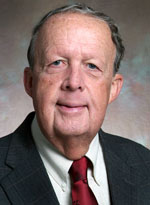 |
|
| Richard Compans |
Walter Orenstein, associate director of the Emory Vaccine Center, and Richard Compans, an Emory microbiologist, lead the Emory-UGA center.
The CEIRS network conducts influenza research that is integrated with surveillance data from human and animal populations in the United States and around the world. The network played a significant role in the nation's response to the 2009 H1N1 flu pandemic by quickly characterizing the virus and performing preclinical testing, leading to vaccine development.
"It is critically important to have a coordinated and focused response to the emerging public health threat of globally circulating influenza viruses," says Orenstein. "Our center is well positioned to continue research into understanding how influenza viruses can become pandemic threats and the factors that can lead to optimal immune response to emerging flu viruses."
Studies within the Emory-UGA CEIRS will include surveillance of influenza viruses that infect swine and swine immune responses to virus infection. With collaborators in China, animal surveillance efforts will include both swine and poultry. Basic research projects will include efforts to better understand the human immune response to influenza vaccination, including responses of pregnant women and determination of genetic signatures that correlate with optimal immune responses. Studies are planned to evaluate the duration of influenza antibody-producing cells in the bone marrow, which could aid in development of influenza vaccines that would induce long-lasting immunity to multiple flu strains.
Emory Saint Joseph's receives fifth Magnet designation
 |
Emory Saint Joseph's Hospital (ESJH) is one of only three hospitals in the world and the only community hospital to achieve its fifth consecutive Magnet designation from the American Nurses Credentialing Center (ANCC). Magnet designation recognizes the hospital's rigorous standards for nursing excellence.
"One Magnet designation is a milestone. Two designations prove you are on the right path, and five designations make you a role model for health care organizations around the globe," wrote Emory Healthcare leaders in an email to employees announcing the redesignation.
ESJH received its first Magnet designation in 1995 and has achieved redesignation every four years since. Magnet recognition is associated with benefits such as reduced mortality and reduced rates of hospital-acquired infection as well as increased patient and job satisfaction for nurses.
"The focus of Magnet is how nursing excellence, achieved through a professional work environment, influences patient outcomes," says Joyce Soule, VP of patient care services and chief nursing officer at ESJH. "Our Magnet culture has attracted the best of the best in all disciplines and provides a rich practice environment that enables nurses to live our nursing mission."
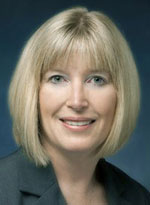 |
|
| Joyce Soule |
The Magnet appraisers, who spent three days at ESJH in February, noted the hospital's interdisciplinary collaboration, teamwork at all levels, strong leadership, and the fact that evidence-based practice was woven into all facets of care.
ESJH is one of six Magnet-designated hospitals in Georgia, including Emory University Hospital. Emory University Hospital Midtown submitted its Magnet application in August and is now working on document submission to the ANCC.
With the change in Georgia's primary election date moved up two months to May 20th, this year's state General Assembly was on a fast pace from the start, only to be delayed by two snow storms. Following are highlights from the condensed 40-day 2014 session that pertain to health sciences:
 |
State budget—House and Senate leadership increased funding for graduate medical education programs funded through the Georgia Board for Physician Workforce for fiscal year 2015, the first such increase in six years. Emory's family and preventive medicine programs as well as other residency programs at Grady will benefit. The House also passed HR 1722, which creates a special committee to study education issues and provider shortages in the health professions (physician, nursing, public health, and allied health) in Georgia.
"We also appreciate the strong support we received in our funding request for the Fetal Alcohol Syndrome Program that was transferred to the Department of Psychiatry from the Marcus Autism Center," says Linda Womack, director of state government affairs. The state funded $190,000, which will be matched with another $190,000 from the federal government.
Bills that passed—The Cancer Treatment Fairness Act, HB 943, sponsored by Emory College and dental school alumnus Rep. Lee Hawkins, requires parity of coverage by health insurers for intravenous and oral types of chemotherapy provided to cancer patients. Language from a different bill, prohibiting any state agency or organization from using state financial or human resources to help patients navigate the Affordable Care Act (ACA), was added onto HB 943 before passage.
Another bill that passed was HB 990, which prohibits expansion of Medicaid per the ACA without approval by the legislature. Republican Senator Chuck Hufstetler, also an Emory alumnus (allied health), voted against HB 990, arguing that the refusal to accept federal Medicaid money was hurting financially distressed hospitals.
Bills that didn't pass—The legislature failed to reach final agreement on HB 885, which would have provided a mechanism for Georgia children with severe seizure disorders to obtain medical marijuana, specifically cannabis oil, legally and safely. However, Governor Deal announced plans this month to move the state forward in a clinical trials process using legal cannabis oil products. "We commend the Governor's initiative to clarify the benefits of this product through good-quality, controlled clinical trials," says Womack.
Other legislation that did not pass was SB 397, which would have mandated insurance coverage for autism services and treatment for children up to age six. The bill passed overwhelmingly in the Senate but failed to make it out of the House Insurance Committee. This legislation is expected to be back next year for consideration, says Womack.
"While the dust is still settling on the 2014 session, Linda's work continues in our efforts with legislators and state agencies on budget and health care initiatives impacting the WHSC, several of which will be at the forefront on the 2015 General Assembly session," says Charlie Harman, VP of Government and Community Affairs.
New details about the EUH bed tower
 |
| In this rendering of the new bed tower, Clifton Road runs parallel to the trees in front of the building. See aerial view below. |
The new Emory University Hospital (EUH) bed tower, which is expected to open in 2017, will have nine levels, 210 beds, and approximately 500 parking spaces. A new pedestrian bridge will connect the bed tower with EUH, Emory Clinic, Winship Cancer Institute, and parking decks.
 |
While many specifics remain to be worked out, some details about plans for the tower are now available. For example, patient care units for cancer and transplant (liver, kidney, pancreas) will move to the new building. Once the tower opens, the EUH services currently on 4A, 4B, 5A, and 5B will relocate to newly renovated space in the existing EUH building, and these areas will no longer be used as patient rooms.
The new bed tower is part of a continuum of renovation and expansion projects, some of which are now complete, says David Pugh, Emory Healthcare VP for space design and construction.
For example, the recently renovated EUH emergency department, which now has 34 beds and is twice the size of its previous space, will stay in its current location. Other completed projects include EUH valet improvements that doubled the size of the operation, reconfiguration of the Emory Clinic valet service (better traffic flow and a covered pedestrian bridge from the parking deck), a renovated EUH Admissions and Care Initiation Unit on the second floor, a renovated PACU (pre- and post-anesthesia care unit) on the third floor, and reconfiguration of Woodruff Circle that helped remove 500 shuttles a day from Lowergate Drive.
Sustainability in practice
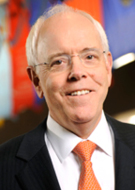 |
|
| Wright Caughman |
"Sustainability" isn't just a buzzword for the Woodruff Health Sciences Center (WHSC); it's a core institutional value and, increasingly, a way of life for our faculty, staff, and students. Our Sustainability in Health Sciences Task Force is working across all the units of the WHSC to meet the goals adopted by the President's Council in 2006: reducing energy use and overall waste; recycling electronics, construction materials, food waste, and animal bedding; and serving local or sustainable food in our hospitals and cafeterias.
Among the many efforts under way is Emory Healthcare's participation in the Atlanta Better Buildings Challenge, a national effort to reduce energy and water consumption 20% by 2020. Emory University Hospital Midtown is participating in the challenge, and after receiving free energy and water use audits from local consultants is now implementing more than 20 energy conservation measures across the hospital, including both facility retrofitting and behavior changes.
Dr. Demetrius Woods of the School of Medicine's Department of Gynecology and Obstetrics also recognizes the importance of choosing sustainable behaviors. He has developed a set of guidelines to help his fellow physicians make the conscious decision to eliminate waste. His colleague Dr. Jane Duggan of the Department of Anesthesiology is similarly working to reduce waste in our operating rooms.
In addition to reducing waste, WHSC has embraced recycling, including composting animal bedding in our research facilities. Some 16 tons of animal bedding waste are currently being diverted to compost each month. Our new facilities are making a similar difference: 99% of the demolition waste from our Health Sciences Research Building was recycled, and we have partnered with LifeCycle Building Center to reclaim and redistribute materials from demolition related to the new hospital tower.
Finally, our hospital cafes serve local or regional produce whenever feasible and, depending on the season's harvest, use vinaigrette made from tomatoes harvested at a EUOSH kitchen garden, which is doubling its tomato plants this summer.
These and a multitude of other efforts across the schools and units of the WHSC are helping us make tangible progress toward the university's sustainability goals. Thank you to everyone involved in these innovative efforts and to everyone who makes the conscious decision to practice sustainability.
Please direct questions and comments to evphafeedback@emory.edu.
 |
Awards of distinction
The following Woodruff Health Sciences Center employees were honored recently with Emory's 2014 Awards of Distinction.
 |
|
| Lynell Cadray |
Lynell Cadray, the nursing school's associate dean for enrollment and student affairs, was honored for significant improvements in nursing student recruitment and retention. Some of the changes she has made include reorganizing the Office of Enrollment and Student Affairs, launching a new online application process, implementing creative admission marketing strategies, and developing a strategic approach to national recruitment.
 |
|
| Jane Lawson |
Jane Lawson, a senior program associate at the Emory Vaccine Center, coordinates educational programs, scientific symposiums, and graduate school seminars with faculty and invited researchers. She helps plan Action Cycling Atlanta's major fundraiser, the AIDS Vaccine Bike Ride, each year. She implemented a community service project that contributes to the Ponce Clinic food pantry, serving HIV/AIDS patients.
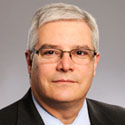 |
|
| Sam Shartar |
Sam Shartar is senior administrator of the Office of Critical Event Preparedness and Response, where he regularly leads complex disaster exercises. He doubled Emory's buying power with the Telvent weather-monitoring program to provide forecasts and early warnings for severe weather. He also brokered a partnership with DeKalb County for a digital upgrade to Emory's radio system, producing a savings of $3.1 million.
CareMore and EHC explore collaboration
CareMore Health System and Emory Healthcare are exploring a collaboration that will implement CareMore's nationally recognized clinical care model to help reduce health care costs and improve health outcomes for Emory Healthcare Network (EHN) patients, beginning with the Medicare Advantage population. Under the agreement, the EHN will continue to provide health care services to patients of many different Medicare Advantage plans, with the addition of CareMore-like comprehensive care centers, providing CareMore's hallmark care coordination. "We have been impressed with CareMore's success in improving the health of senior members through their highly coordinated care model that leverages technology, early intervention, and a personal touch," says Rick Gitomer, EHN president and chief quality officer. CareMore currently serves nearly 70,000 seniors in California, Arizona, and Nevada. Read more.
Doctors Day and scholarship
On March 30, Emory Healthcare celebrated Doctors Day (the anniversary of Dr. Crawford Long's contribution to medicine with the first administration of anesthesia) to acknowledge the contributions of its medical staff. Last year EHC established the EHC Medical Staff Scholarship, and Amir Shirazi 13C 17M was the first recipient. The scholarship, which gives an Emory medical student $5,000 each year for four years, is now open to a second recipient from the incoming class this summer.
Emory Healthcare's Second Century Awards
Rein Saral (hematology/medical oncology), John Henry (retired, former CEO, Emory hospitals), Donald Wells (retired former chairman of the board, Emory Johns Creek Hospital, and former executive director of Emory University Hospital), and John Garrett (retired orthopaedic surgeon, Emory Saint Joseph's Hospital) recently received 2014 Second Century Awards from Emory Healthcare for their dedication, leadership, and commitment. Read more.
Notable
Craig Coopersmith was named the vice-chair of research in surgery.
Seth Force (surgery) was named chief of thoracic surgical services.
Charles Staley (surgery) is a principal investigator for the Winship outpost of the National Cancer Institute's new National Clinical Trials Network, along with medical oncology chief Suresh Ramalingam and radiation oncologist Jonathan Beitler.
David Stephens (VP for research, WHSC, and chair of medicine) was named a fellow of the American Academy of Microbiology.
Save the date
April 24: 5th annual Academic & Industry Intersection Conference, 8 a.m. - 1 p.m., Georgia Tech Research Institute Conference Center, agenda/schedule.
April 24: SON Center for Neurocognitive Studies presents The Mind of a Failing Heart: Structural and Functional Brain Changes in Heart Failure by Mary Woo of UCLA, 4 p.m., SON auditorium, RSVP.
April 26: 2nd annual Emory Med Art Gala, 7 p.m., SOM building. More info. RSVP.
May 1: 1st Biennial Academy of Medicine Distinguished Lecture, by Joseph Hubbell, 4 p.m., Academy of Medicine Bldg, 875 W Peachtree St. NW. RSVP.
Sept 27: Registration is now open for the Winship Win the Fight 5K. Event info.
